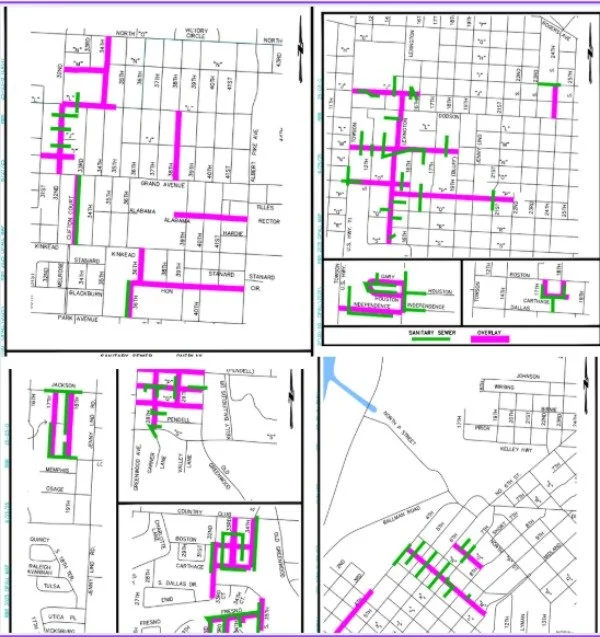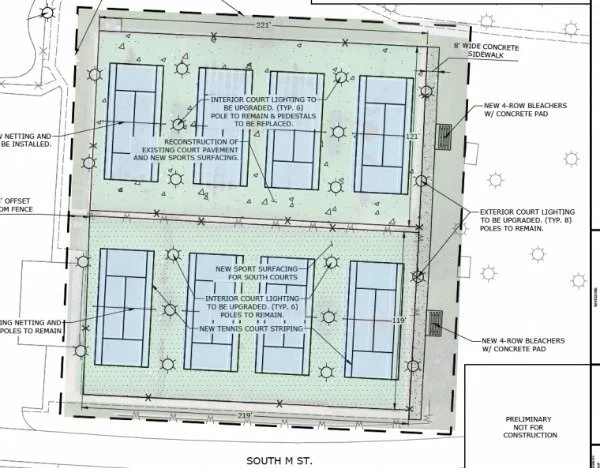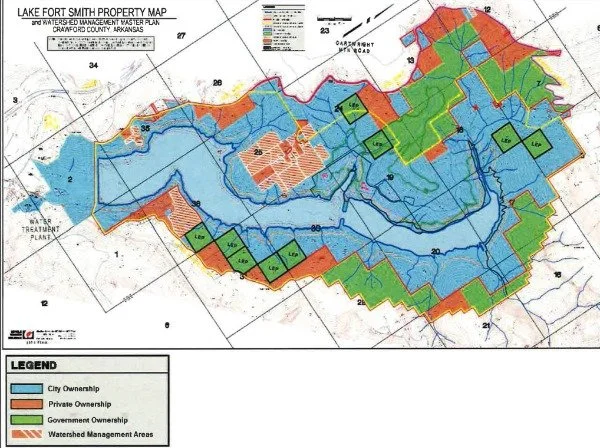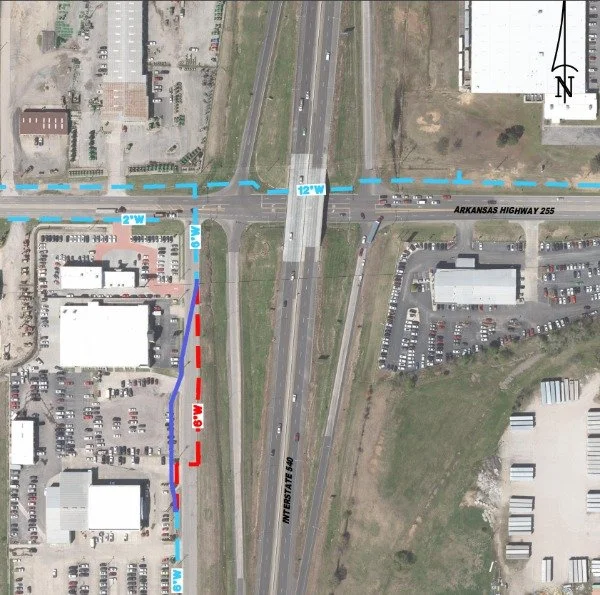Agenda Highlights 7/22/25
At the Fort Smith Board of Directors meeting scheduled for 7-22-25, the Board will vote on whether to approve and submit to the EPA the Energy and Environment Comprehensive Action Plan that is required to be crafted and submitted to the federal government by 8-1-25 as a part of the requirements for the Climate Pollution Reduction Grants. The City was already awarded and has accepted $14.5 million for sustainability projects including the alleyway rehabilitation project , workforce development, solar power for Nelson Hall Homes, and electric vehicle charging infrastructure.
Other recommendations mentioned in the plan for possible future consideration include
Incremental investment in sidewalks, bike lanes, and transit shelters
Pilot programs and public-private partnerships to test low cost scalable mobility solutions
Pursuit of State and Federal grants to fund improvements instead of City funds
Green infrastructure like rain gardens, bioswales, and permeable pavements
Stormwater reuse systems
Asset management tools to prioritize upgrades for extreme weather
Community led waste reduction initiatives
public-private partnerships to expand recycling, composting, and diversion of organic waste from the landfill
Grant funding for pilot programs for circular economy programs
Conservation easements to preserve open space
Volunteer programs to maintain trails and green spaces
Low impact design standards for new developments near natural areas
Encouraging regional collaboration
Prioritizing positive social impact
Monitoring progress, evaluating effectiveness, and adjusting strategies to respond to challenges and opportunities
Monitoring projects and evaluating outcomes to assure transparency and accountability
Updating Greenhouse Gas (GHG) emissions inventory regularly
Conducting a carbon sequestration inventory
Conducting a carbon storage study
31% of the Fort Smith region’s GHG emissions are related to the electrical power sectors. Some potential future projects suggested in the plan related to electrical power include
Priority Project *- Remediation of brownfield sites for conversion for renewable energy infrastructure
Expansion of renewable energy for City operations
Repairs/improvements to the Clyde T. Ellis Hydroelectric generating station
Supporting/incentivising renewable energy with priority given to disadvantaged communities
Identifying opportunities to rescue capacity demand for water treatment facilities by reducing stormwater infiltration and potable water demand
31% of the Fort Smith region’s GHG emissions are related to transportation. Some potential future projects suggested in the plan related to transportation include
Priority Project*- Implementation/Expansion of smart intersections that use technology to enhance efficiency and reduce traffic congestion
Priority Project*- Remediation of brownfield sites for conversion for support of active transportation
Expansion of public transit with more service hours and larger service area
Replacing City vehicles with low/no emission vehicles
Expanding infrastructure for alternative fuel vehicles including bus fleets
Expanding infrastructure for active transportation including sidewalks, trails, bicycle facilities, and transit stops with priority given to disadvantaged communities
Developing low/no emission ride sharing and e-bike programs with priority given to disadvantaged communities
Updating building and zoning codes to encourage walkable, bikeable, and transit-friendly development
8% of GHG emissions in the Fort Smith region are related to buildings. Some potential future projects suggested in the plan related to buildings include
Priority Project*-Providing educational resources about opportunities to use the Commercial Property Assessed Clean Energy finance mechanism that allows commercial property to finance sustainability and efficiency improvements
Priority Project*- Remediation of brownfield sites for conversion to support workforce development related to building energy efficiency improvements
Upgrading municipal facilities for energy efficiency
Adopting up to date building energy codes
Developing voluntary programs to promote low emission transportation options and electric vehicle charging focused on buildings in disadvantaged communities, multi-family residential buildings, and commercial buildings
9% of GHG emissions in the Fort Smith region are related to the industrial sector. Some potential future projects suggested in the plan related to industry include
Priority Project*- Remediation of brownfield sites into educational facilities for workforce development for industrial efficiency
Efficiency upgrades for the Port of Fort Smith
Programs to support energy efficiency for local industry
Some potential future projects suggested in the plan related to solid waste include
Priority Project*- Remediation of brownfield sites for conversion to recyclable material facilities
Building a City operated recyclable materials recovery facility
Constructing an anaerobic digester facility at the wastewater treatment plant
Construction of a biomass gasification facility or biochar pyrolysis facility at the landfill
Some potential future projects suggested in the plan related to carbon sequestration include
Priority Project*- Remediation of brownfield sites into parks and urban forests
Priority Project*-Planting native trees and plants in City owned parks, trails, and rights of way
Identifying green land for protection by means including purchase and conservation easements
Restoring prairies, forests, streams, and wetlands on City properties
Developing conservation plans for new parks that include measures to preserve areas with high carbon sequestration value
The plan suggests future potential partnerships with UAFS, Peak Innovation Center, Fort Smith Public Schools, and the Arkansas Advanced Energy Foundation for workforce development projects for green careers and education related to energy efficiency.
The Board will vote on whether to raise the City pay rate for engineers. The pay increases are being suggested to be able to offer pay rates that are competitive enough to improve hiring and retention of skilled engineers.
The Board will vote on whether to contract with Hawkins-Weir for $291,250, Brixley for $402,000, and Mickle Griffin for $535,460 for engineering services for streets resurfacing projects and sewer work to be done at the same time.
The Board will vote on whether to adopt the formal grants policy. The policy would aim to be a policy in which official standardized processes and procedures would be applied consistently by all departments and would comply with all state, local, and federal regulations. The policy to be voted on is the one discussed at the 6-10-25 study session meeting with the addition of a section regarding the role of Internal Audit, a section regarding the Transit Department, and a section regarding the Community Development Department.
The Board will vote on whether to apply for an Arkansas Community Assistance Grant for resurfacing of the top 4 tennis courts at Creekmore, reconstruction of the bottom 4 courts with a base of concrete instead of asphalt, replacement of fencing and windscreens, adding spectator seating on the east side of the courts, and conversion to LED light fixtures. The entire project would cost $1,117,000 but with the State grant covering 80% of the project the City’s required 20% contribution would only be $223,4000.
The Board will vote on whether to approve a settlement agreement in the employment discrimination case of former City employee Asentha Saul. The settlement would result in the City paying Saul $9500. She would be responsible for her own legal and court fees. If the case had gone to trial, Saul was seeking a total of $300,000-$350,000. Plus, regardless of if the City were to have won or lost the case, the cost of going to trial for City legal fees, staff wages, and other costs would have been about $40,000. The settlement agreement amount is less than 25% of the costs that would be incurred if the case went to trial even if the City won at trial.
The Board will vote on whether to exchange land with the US Forest Service around Lake Fort Smith. The swap would be an even land-for-land swap and would not result in any cost for either the City or the Forest Service.
The Board will discuss contracting with Amaresco for $125,000 for an investment grade audit to analyse the existing water meter database focusing on meter consumption, sizes, and type of meters and to evaluate potential effects of system rehabilitation and automation and determine potential operational cost savings. The project would take 3-5 months to complete.
The Board will vote on contracting with Goodwin & Goodwin for $370,325.75 for a water line relocation project at the I540 exit ramp and Zero Street intersection needed in relation to an ARDOT road project. The entire cost of the project will be reimbursed by ARDOT.
In Executive Session, the Board will interview one applicant, Jason Mitchell, for the Director of Internal Audit vacancy.










